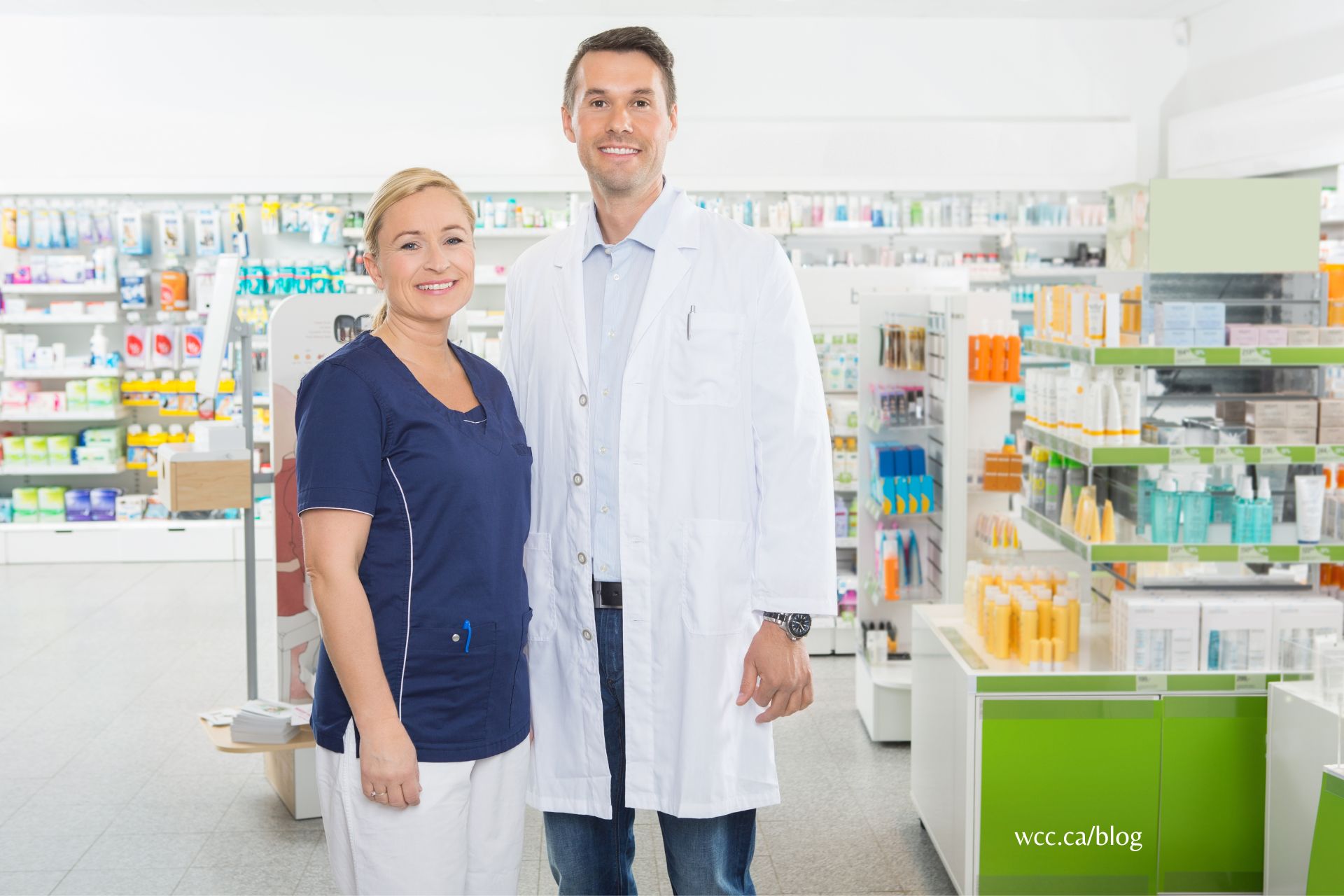In the dynamic world of healthcare, the roles and responsibilities of medical professionals often overlap and intertwine. One such example is the question, ‘Can a medical assistant work in a pharmacy?’
As the demand for skilled healthcare personnel continues to grow, exploring the possibilities and potential contributions of medical assistants in a pharmacy environment becomes essential.
In this article, we will delve into the topic and shed light on the role of medical assistants in pharmacies, examining the tasks they can undertake and the benefits they bring to the pharmacy team.
What is a medical assistant?
A medical assistant is a healthcare professional who performs both administrative and clinical tasks in a medical setting, such as a doctor’s office, clinic, or hospital. They are often considered a vital part of the healthcare team and work under the supervision of physicians or other healthcare providers after completion of a Medical Assistant course.
Can a medical assistant work in a pharmacy?
Yes, a medical assistant can work in a pharmacy, although their role in that setting may be different from their traditional responsibilities in a clinical or medical office setting. In a pharmacy, a medical assistant may be employed as a pharmacy assistant or pharmacy technician, supporting the pharmacists and other staff members in various tasks.
-
 Get ready to work in hospital & community pharmacies as a Pharmacy Assistant.PTIB accredited program with smaller class sizes. Offered Part time and Full time. Become familiar with pharmacology, pharmacy math, and pharmacy billing software.
Get ready to work in hospital & community pharmacies as a Pharmacy Assistant.PTIB accredited program with smaller class sizes. Offered Part time and Full time. Become familiar with pharmacology, pharmacy math, and pharmacy billing software.
Can medical assistants give medications?
No, medical assistants generally do not have the authority to give medications independently. The administration of medications is typically regulated and restricted to licensed healthcare professionals, such as nurses or physicians.
Responsibilities of a medical assistant:
Some of the general responsibilities of a medical assistant includes;
- Greeting and checking in patients, and escorting them to examination rooms.
- Recording patients’ medical history, including medications, allergies, and vital signs.
- Assisting healthcare providers during patient examinations and procedures.
- Collecting and preparing laboratory specimens, such as blood or urine samples.
- Performing basic laboratory tests, such as urinalysis or blood glucose monitoring.
- Administering medications under the direction and supervision of a physician.
- Providing patient education on medications, procedures, and general healthcare.
- Scheduling patient appointments, coordinating referrals, and managing medical records.
- Managing inventory of medical supplies and ensuring the availability of necessary equipment.
- Handling administrative tasks, such as answering phone calls, managing correspondence, and maintaining patient files.
- Preparing and maintaining examination rooms, ensuring cleanliness and proper sterilization of instruments.
- Assisting with medical office management, including billing, insurance claims, and compliance with regulations.
How to become a medical assistant?
In Canada, becoming a medical assistant typically requires completing a formal education program and obtaining certification. Here are the general steps to become a medical assistant in Canada:
- Research Requirements: Start by researching the requirements specific to the province or territory in which you plan to work as a medical assistant. Each province may have different regulations and guidelines regarding education, certification, and scope of practice.
- Complete a Medical Assistant Program: Enroll in a recognized medical assistant program at a community college or vocational school. These programs typically range from 6 months to 2 years in duration and provide both classroom instruction and practical training. Make sure to choose a program that is accredited or recognized by the appropriate regulatory bodies in your province.
- Clinical Externship: Many medical assistant programs include a clinical externship component where you will gain hands-on experience in a healthcare facility, such as a hospital, clinic, or doctor’s office. This practical training is crucial for developing skills and applying the knowledge learned in the classroom.
- Obtain Certification: While certification is not always mandatory, it can enhance your employment prospects and demonstrate your competence as a medical assistant. Several certification options are available in Canada, such as the Canadian Certified Medical Assistant (CCMA) offered by the Canadian Medical Association (CMA) or the Registered Medical Assistant (RMA) offered by the Canadian Society of Medical Laboratory Science (CSMLS). Each certification has its own requirements, including education, experience, and passing an examination.
- Register with Provincial Regulatory Bodies: Some provinces or territories may require medical assistants to register with a regulatory body or professional association to practice legally. Check the specific requirements in your province and complete any necessary registration or licensing procedures.
- Continual Professional Development: Once you become a medical assistant, it’s important to stay updated with advancements in the field. Participate in continuing education programs and workshops to enhance your skills and knowledge.
Conclusion:
In conclusion, medical assistants can indeed play a valuable role in a pharmacy setting. Their unique skill set, encompassing both administrative and clinical expertise, makes them versatile assets to the healthcare team. While their scope of practice in a pharmacy may differ from their traditional clinical responsibilities, medical assistants can contribute to various aspects of pharmacy operations, from medication dispensing and inventory management to patient education and administrative tasks. By effectively leveraging the skills of medical assistants, pharmacies can enhance their efficiency, improve patient care, and foster a collaborative healthcare environment. As the healthcare landscape continues to evolve, recognizing and embracing the potential of medical assistants in pharmacies can lead to more comprehensive and patient-centered services.



